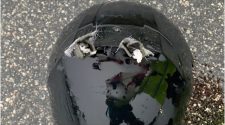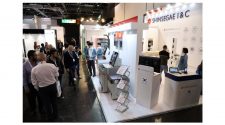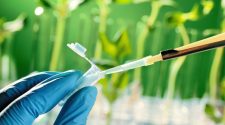MADISON, Wis. (CN) – More than five years of litigation over bovine technology that converts raw bull ejaculate into sex-specific semen for cattle breeding continued in Wisconsin federal court Tuesday, as a Wisconsin bull-stud and a Texas semen sexing firm delivered opening statements in their latest round of legal beefing.
The fracas began in July 2014 when ABS Global, a cattle breeder based in DeForest, Wisconsin, sued Inguran LLC, a Texas-based company that processes bull semen into sexed samples, for allegedly violating antitrust laws by boxing out marketplace competition for chromosomal sorting technologies.
Inguran, which does business with all its subsidiaries as Sexing Technologies, made its mint by taking unprocessed bull ejaculate from breeders, using patented technology to convert the raw ejaculate into sexed semen by separating either X or Y chromosomes into a female or male-dominant sample, and then selling that sexed sample back to either dairy farmers or beef producers.
ABS, which wanted to produce its own sexed semen, claimed Sexing Technologies’ terms were monopolistic in violation of the Sherman Act. Sexing Technologies later countersued, saying that ABS had violated its confidentiality agreement and infringed upon patents outlining the processes for creating sexed semen samples.
After a two-week trial, U.S. District Judge William Conley ruled in favor of Sexing Technologies and ABS appealed.
In January 2019, a three-judge panel in the Seventh Circuit, led by Chief Judge Diane Wood and joined by Judges Frank Easterbrook and Amy Barrett, upheld the district court’s ruling on some of the patent infringement claims and remanded others back to the district court.
The continuation of Sexing Technologies’ patent infringement claims, as well as a counterclaim from ABS stating that samples Sexing Technologies provided to it did not meet purity standards, got underway Tuesday in Madison, presided over by Judge Conley.
Sexing Technologies’ counsel Kirt O’Neill, with the San Antonio-based firm Akin Gump Strauss Hauer & Feld, stated at the outset of the proceedings that the parties’ dispute is, at its heart, about “not respecting patent rights.”
O’Neill said that over the last 17 years Sexing Technologies – which has about 1,200 employees worldwide – has refined sexed semen technology with faster machines that yield sexed samples of vastly increased purity, leading to significant fertility gains and “revolutionizing the dairy farming industry” in the process.
He claims that ABS saw its technology, said “we want to get in on that,” and set up shop with its own sperm sorter in 2017.
“The competition coming down the pike was not free and fair,” O’Neill said.
ABS’s sorting process allegedly violated three of Sexing Technologies’ patents: one involving a kill laser process that destroys unwanted chromosomes and two involving microfluidic chips that sort cells in a single file line so they can be easily identified by chromosome.
O’Neill warned the jury that ABS may attempt to misdirect it and discounted its breach of contract claim of inferior purity in Sexing Technologies’ samples as an invalid charge leveled in the 59th month of the parties’ 60-month contract.
Thomas Rein, appearing on behalf of ABS from Chicago firm Sidley Austin, stated that ABS and its affiliates “categorically deny” the patent infringement claims.
After years of dealing with Sexing Technologies, which was “the only game in town,” Rein stressed that ABS spent a decade and nearly $40 million in research and development to make its own sperm sorting technology to “provide customers with a choice in the marketplace.”
Rein wrote off Sexing Technologies’ kill laser patent as lacking in enablement and its two microfluidic chip patents as ultimately being obvious and not new. He claimed the Texas company “took credit for technology they did not invent,” pointing out that it bought the laser kill patent from Monsanto and bought the chip patents from a company called Cytonome, which subsequently became its subsidiary.
As for ABS’s breach of contract claim, Rein showed the jury emails from Sexing Technologies employees, which he claimed proved that it knew for years – but did not disclose –that the female chromosomal samples it was selling to ABS did not meet its 85% purity standards.
Judge Conley stated Tuesday that proceedings for the dispute are expected to wrap up on Sept. 11. The parties will call several witnesses, including industry experts, for testimony throughout the seven-day trial.














